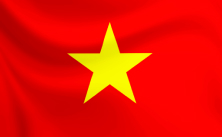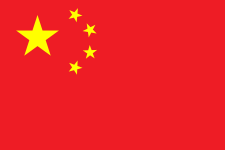Doanh nghiệp vừa và nhỏ lo bị thâu tóm khi vào EVFTA

[From translation and proofreading issues] ...to certification
The debates about the wording, style, structure, vocabulary, and accent between translators using domestic Vietnamese and overseas Vietnamese in the 1st part have recently become even more salient as professional English <-> Vietnamese translators seek to gain more professional credentials for their résumés (CV) and profile pages or websites. There is no official association in Vietnam responsible for certifying translators and interpreters, and forming one is unfeasible given the hostility of the government towards requests to organize by nonmembers of the communist party. Thus, the only choice for us is to take certification examinations in countries where the Vietnamese language has become common—such as the US, UK, Australia, and Canada. The problem now appears clearly and consistently with what I mentioned in the previous section: reviewers of these tests are overseas Vietnamese translators, and they usually have an implicit anti-communist attitude toward exam submissions, which should be judged only on a linguistic basis. They are naturally not familiar with domestic Vietnamese. As a consequence, domestic Vietnamese translators have almost no chance of passing these exams. The clearest evidence is found when looking closely at the directories of international translation organizations: almost all currently certified English <-> Vietnamese translators live outside Vietnam. Thus, translators living in Vietnam experience the disadvantage of having no official professional association relating to translation/interpreting. They therefore face significant difficulties in showing evidence of their professionalism and ultimately, obtaining certification. This situation also, unintentionally, makes it difficult for young translators who are living in Vietnam to develop their profession more systematically and expand their contacts internationally.
Potential solutions
To conclude, this article aims to suggest some solutions, rather than to complain about the problems. First, as mentioned, the best and most practical solution is for translators and reviewers living in nations where overseas Vietnamese language is common to read this article, to be educated about the facts and their possible unintentional misunderstandings so that they can have a more open attitude when reviewing exams or translations by translators who are living in Vietnam and using domestic Vietnamese.
As it remains impractical to suggest establishing a translation association in Vietnam, domestic Vietnamese translators should honestly discuss their familiarity with overseas Vietnamese to clients before beginning a translation job. Furthermore, if they want to practice translating this variant, finding assistance from people who are living in the diaspora and searching for documents written in Vietnamese before 1975 are good options.
[NOTES]
General Statistics Office of Vietnam: Central Population and Housing Census Steering Committee. June 2010. The 2019 Vietnam Population and Housing Census: Completed Results. https://www.gso.gov.vn/default_en.aspx?tabid=768&ItemID=19282
Results of the Population and Housing Census 01/4/2019. https://vietnam.un.org/en/28931-results-population-and-housing-census-0142019
MLA Language Map Data Center. n.d. MLA Language Map Data Center. Modern Language Association. https://apps.mla.org/map_data
Central Intelligence Agency. n.d. World Factbook. https://www.cia.gov/library/publications/the-world-factbook/geos/as.html.
François et al. 2002. La dynamique des langues en France au fil du XXe siècle. Population & Sociétés. no. 376. http://www.ined.fr/fichier/t_publication/65/publi_pdf1_pop_et_soc_francais_376.pdf
[BIO]
Lan Hoang has worked as a professional freelance translator since 2013. He has a bachelor of arts in English language with a concentration in translation studies from Hue University, Vietnam, and a master of arts in language studies from Yuan Ze University, Taiwan. He is also an active member of ATA, NAJIT, and Proz's pro-certified network for the English<->Vietnamese language pair. He has published academic articles and conference proceedings papers in linguistics, language, and translation studies. He may be reached at [email protected].






